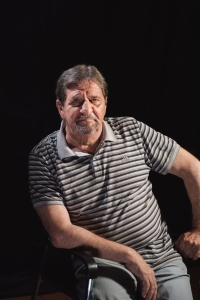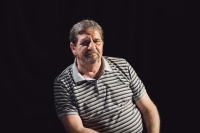“This goal against Barcelona, few can boast about it.”

Download image
Ján Čapkovič, a former Slovak footballer and Czech-Slovak national team member, was born on January 11, 1948 in Bratislava, in one of Petržalka’s family houses. In addition to coming from twins, he has a brother who is three years older. Father Ľudovít Čapkovič, a native of Trnava, was born in 1917 and mostly worked as a clerk in his life. Later, he worked for almost 40 years as the chief treasurer of the Slovak State Savings Bank. Mother Mária was a year older than her husband and worked as a payroll accountant. Ján’s parents lived in Petržalka for many years and did not leave it even after the outbreak of World War II. In 1954, Ján began attending primary school in Bratislava, where, like others, he took part in all kinds of school activities, such as visiting theaters and attending mathematics olympiads. Interest in football, not only as entertainment, but also much more important, began in 1956, after being accepted into the Red Star Bratislava club. In 1963 he entered the Secondary Industrial School of Electrical Engineering on Zochova Street in Bratislava, and at that time he was already part of the Youth League. In April 1967, at the end of high school, a transfer to Slovan took place. Jano and his brother joined the team as young boys and worked there for ten years. Ján played 286 league matches, while he was missing in only six. He was never injured and as an attacker and one of the fastest Slovan players, he always played the left wing. After high school, he joined the Department of Physical Education at Comenius University. As it was difficult to combine training in Slovan with sports at school, he left school after a few months. The following school year he entered the Faculty of Economics, which he successfully completed in 1979. Perhaps the greatest club success of Slovan, his team won in 1969 in Basel, where they defeated the FC Barcelona Cup Winners’ Cup in the final. Ján gave them his miraculous right foot, the final, third goal. Unforgettable were also the Republic Championships in 1970, when Slovan disrupted the hegemony of Trnava and won the title for the first time. Ján thus won three championship titles and three cup trophies. In addition, he also became the best scorer and header of the season. Although Jano had many opportunities to emigrate, he never considered it. He had several offers, but since he almost got married and had two children, he was afraid that his departure would cause problems for the family. A specific offer came, for example, from Espanyol Barcelona, but declined. After returning from the war, he remained working at the Red Star Club as a clerk and at the same time as an active player for another six years. He thus became the first acting clerk until 1986. In the Red Star itself, he served for thirty years. He worked with talented youth until 2010. Due to his work in the field of sports, he accepted a job at the Ministry of the Interior and in 1987, so he had to join the Communist Party, although he did not want to. At present, Ján is dedicated exclusively to his family and to his four grandchildren, whom he loves very much.

